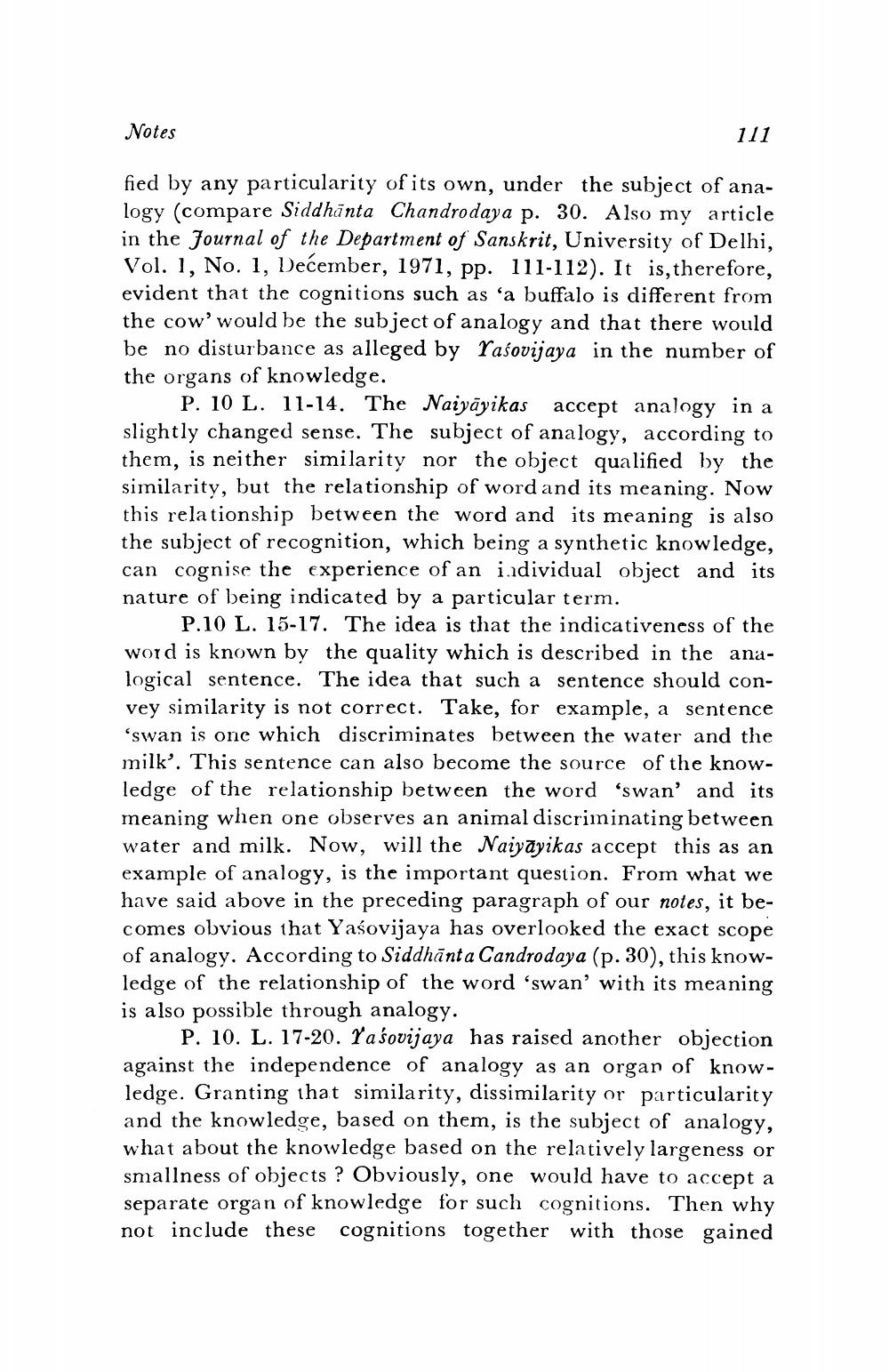________________
Notes
111
fied by any particularity of its own, under the subject of analogy (compare Siddhānta Chandrodaya p. 30. Also my article in the Journal of the Department of Sanskrit, University of Delhi, Vol. 1, No. 1, December, 1971, pp. 111-112). It is, therefore, evident that the cognitions such as 'a buffalo is different from the cow' would be the subject of analogy and that there would be no disturbance as alleged by Yasovijaya in the number of the organs of knowledge.
P. 10 L. 11-14. The Naiyāyikas accept analogy in a slightly changed sense. The subject of analogy, according to them, is neither similarity nor the object qualified by the similarity, but the relationship of word and its meaning. Now this relationship between the word and its meaning is also the subject of recognition, which being a synthetic knowledge, can cognise the experience of an individual object and its nature of being indicated by a particular term.
P.10 L. 15-17. The idea is that the indicativeness of the word is known by the quality which is described in the analogical sentence. The idea that such a sentence should convey similarity is not correct. Take, for example, a sentence ‘swan is one which discriminates between the water and the milk'. This sentence can also become the source of the knowledge of the relationship between the word 'swan' and its meaning when one observes an animal discriminating between water and milk. Now, will the Naiyāyikas accept this as an example of analogy, is the important question. From what we have said above in the preceding paragraph of our notes, it becomes obvious that Yasovijaya has overlooked the exact scope of analogy. According to Siddhānta Candrodaya (p. 30), this knowledge of the relationship of the word 'swan' with its meaning is also possible through analogy.
P. 10. L. 17-20. Yasovijaya has raised another objection against the independence of analogy as an organ of knowledge. Granting that similarity, dissimilarity or particularity and the knowledge, based on them, is the subject of analogy, what about the knowledge based on the relatively largeness or smallness of objects ? Obviously, one would have to accept a separate organ of knowledge for such cognitions. Then why not include these cognitions together with those gained




